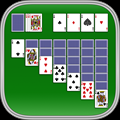Design Mockument: How can MMO relaunches actually work?

Nobody needs to be told at this point that Secret World Legends was not a successful relaunch. It also was not a very good game. In terms of absolute number of changes from the original The Secret World, it had several; in terms of actual improvements to the original game’s problems, it fixed almost none of them and just introduced a number of different problems. And this is pretty obvious if you look at the game it was trying to reboot in the first place because…
Actually, because we need to talk about what makes reboots work at all.
The thing about reboots is that they tend to be common in all forms of media, and while pop culture goes through a cycle of reboots and remakes all the time (we’re on a lower pulse at the moment), a lot of them don’t work out. The reasons why they don’t work out, however, are interesting and worth diving into. So let’s take a step back and examine what makes relaunches and reboots work in a larger sense as well as with online games. Because it’s clear they can work; they just frequently do not.
Now, we can talk a lot about the logistical issues that can come up with rebooting a game, and I’ve mentioned before how mid-sized games that are failing struggle because there’s usually no budget for reinvention but also no future with the existing audience. But there’s a more fundamental issue that comes up first. As I have frequently said that Final Fantasy XIV is not a good type specimen for many reasons, there is a place where it absolutely is. And that starts with the stuff Naoki Yoshida was writing when the relaunch was being developed.
Here’s one of the posts he wrote. It’s just one of several, and the substance of it is pretty irrelevant. What’s important are two elements of the way that he’s writing. The first is that it’s very clear that Yoshida has no particular ego about the game as it currently exists (which makes a certain amount of sense; while he had taken ownership of the project, it was not his original creation). The second is that there’s something pulsing right under the skin of everything he writes, and that’s having a clear picture of a core part of the game that’s worth preserving. And that’s what we’re going to focus on first.
Let’s look at a completely different game that is in no need of a reboot: Guild Wars 2. If this game needed a full top-down creative reboot, where would you start? I think it’s pretty obvious that above all else, you need to focus on a scaling world that players can interact with and that retains relevance no matter what. You need to have a story expressed through zone events as well as fixed quests, a progression of consistent changes, and free-flowing combat that lets different classes use the same core weaponry in unique ways. I think you could change or remove lots of systems and content, but as long as you keep those elements in place, you still have GW2.
I could change a lot about City of Heroes, but I would never change ad-hoc grouping or diverse powersets or its setting and fictional conceit. You could reboot Star Wars: The Old Republic without raids, but you couldn’t remove its story focus. Once you remove these things, you’re removing load-bearing components of the game. And I think that’s important to consider because one of the core parts of what makes a reboot successful is having load-bearing components that can connect with a wider audience but aren’t currently doing so.
Just the other day I wrote a column about how well Star Trek Online conveys its Star Trek nature. Is it the only possible way you could make an MMORPG in the setting? Probably not, but honestly I feel like the game is inherently resistant to a reboot because it delivers on more or less exactly what it should. It is a Star Trek game through and through. There is not some core element that would get a way larger audience from people who don’t care about Star Trek.
This was one of the problems with SWL. The core of TSW had a niche appeal. The load-bearing parts could be improved, and I’ve written about that, but they could never be made mainstream appealing, and trying to do that is ridiculous. I can argue that players should have more reasons to use riddle-solving gameplay and engage with it instead of just riddle-specific quests, but you can’t remove that gameplay, and when you make the riddles hopelessly simple, it just ruins the appeal to the niche that liked that gameplay.
But there’s another aspect I mentioned above, and that’s when it comes to ego. You need to put that to one side, too. And that works two ways.
Rebooting a game that hasn’t connected means that you need to be able and willing to look at basically everything in the game and either change it or outright remove it no matter how cool you think it is. And you might think it’s really cool. It might be one of your favorite ideas in the game. But you need to be ready to evaluate whether or not it’s a barrier to that core part of the game that you want people to connect with.
But it also means being able to scale back and say that you shouldn’t remove or change something just because it isn’t how you would have done it if you had been in charge from the start. Everything requires the same evaluation. Does this serve the actual goal you’re trying to accomplish? Will this help more players get at the core fun part of the game? Or is it getting in the way?
It’s hard to look at a game and really decide if it does have that core broad appeal or not, but it is something that can be done. It’s just not something that every game does have. Being a niche title requires being aware of that and having a budget and development priorities to match, and there’s nothing wrong with being a niche title (so long as you aren’t expecting elaborate cinematic storytelling for your game… then it becomes a problem).
The reason I bring all of this up is because it’s a useful foundation to think about reboots that could, in fact, work. Whether or not they would ever be attempted is another question, but I do think there are MMOs out there that have a fairly niche audience but could draw in more because of their core systems. However… to talk about why, you first need to start from a foundation of what makes these things work.
Not every MMO can really benefit from a reboot. A lot of reboots fail because the game either doesn’t have the core elements that would appeal to people no matter what, or they get reboots that fail to capitalize on those elements even if they’re present. But it can work; it’s just not the standard outcome.
Designing an MMO is hard. But writing about some top level ideas for designing one? That’s… also remarkably hard. But sometimes it’s fun to do just the same. Join Eliot Lefebvre in Design Mockument as he brainstorms elevator pitches for MMO sequels, spinoffs, and the like for games that haven’t yet happened and most likely never will!












